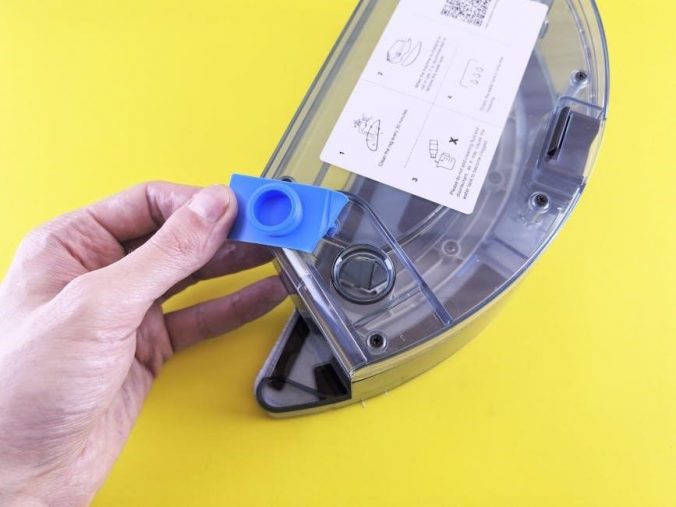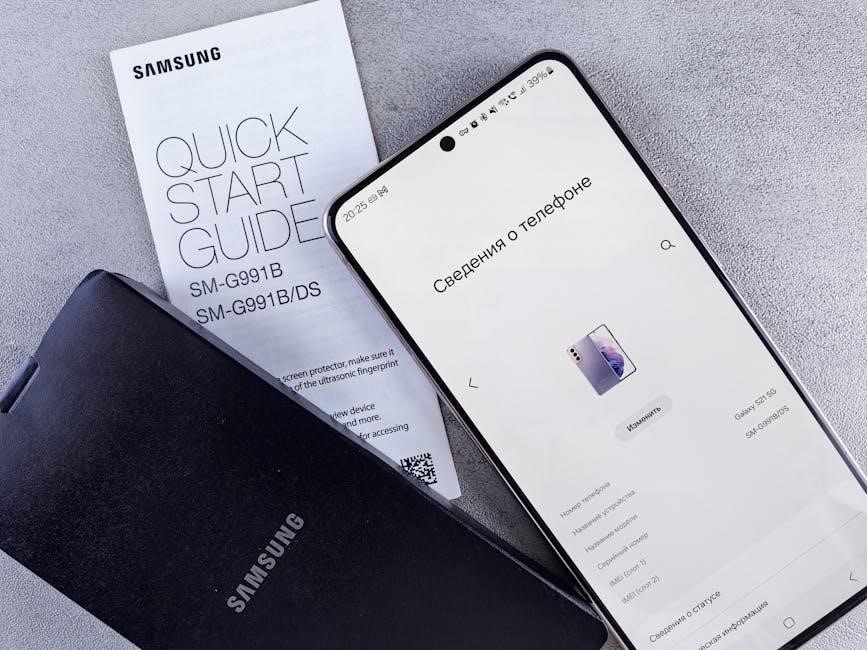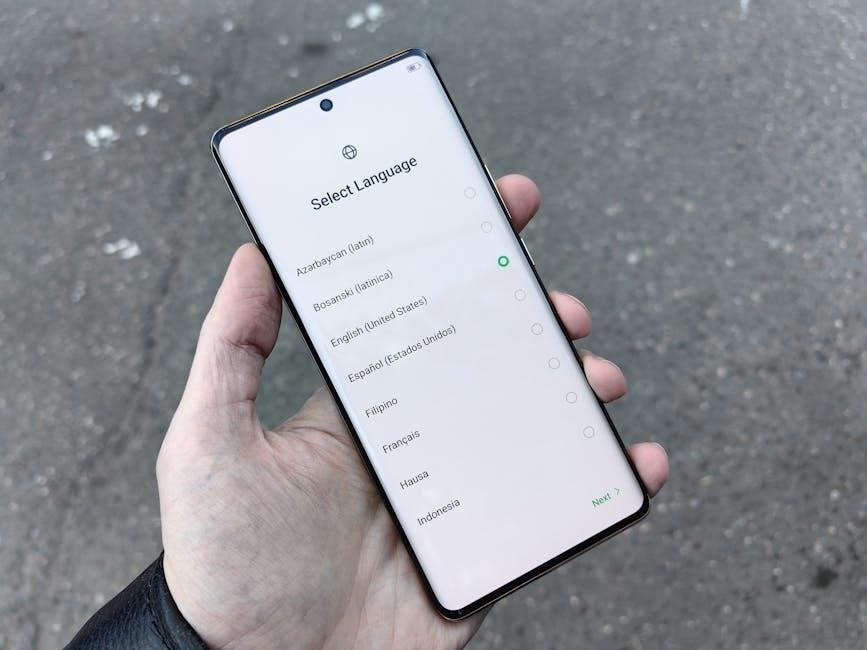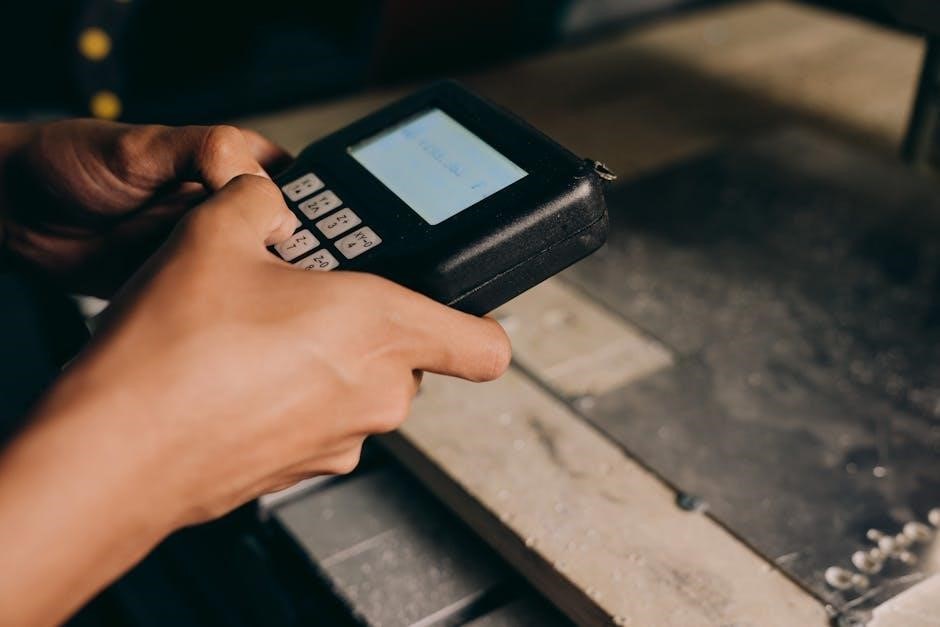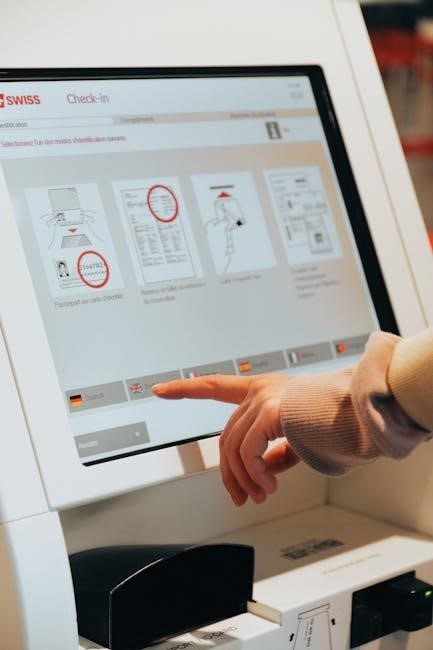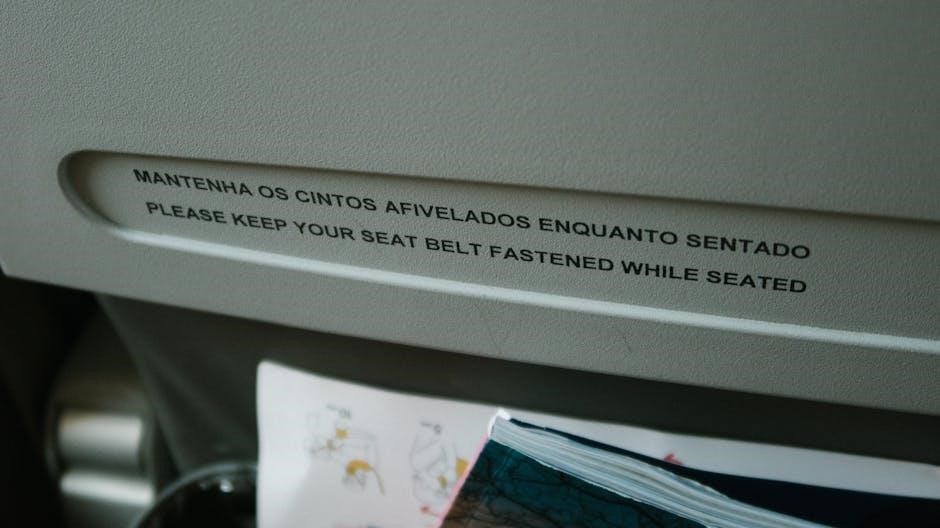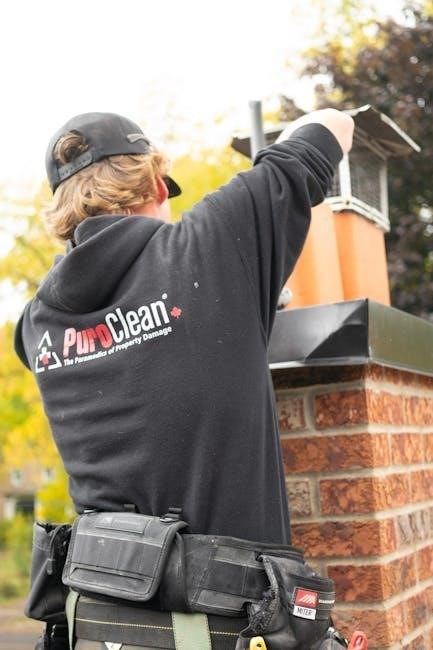Old San Juan Walking Tour Map PDF: A Comprehensive Guide
Discover the enchanting streets of Old San Juan with a detailed PDF map, enhancing your exploration of this historical gem and its UNESCO status․
Old San Juan, a vibrant and historic district of Puerto Rico’s capital, beckons travelers with its colorful colonial architecture, cobblestone streets, and rich cultural heritage․ Established by the Spanish in the 16th century, this walled city offers a captivating journey through time, showcasing centuries of history and architectural brilliance․
Declared a UNESCO World Heritage Site in 1983, Old San Juan stands as a testament to the island’s strategic importance and enduring legacy․ Exploring this captivating locale is best done on foot, allowing visitors to fully immerse themselves in its unique atmosphere․ A well-planned walking tour, guided by a comprehensive map – often conveniently available as a PDF – is the ideal way to uncover its hidden gems and iconic landmarks․
Prepare to be transported back in time as you wander through its plazas, forts, and charming streets!
Why Use a Walking Tour Map?
Navigating Old San Juan’s labyrinthine streets can be challenging without a reliable guide․ A walking tour map, particularly in PDF format, provides an invaluable tool for maximizing your exploration and ensuring you don’t miss key attractions․ These maps clearly illustrate the layout of the city, pinpointing historical sites, restaurants, and points of interest․
PDF maps offer the significant advantage of offline access, eliminating the need for constant data connectivity or worrying about battery drain․ They empower independent exploration, allowing you to create a self-guided experience tailored to your interests and pace․ Furthermore, many maps integrate helpful information, such as estimated walking times and descriptions of landmarks, enriching your understanding of Old San Juan’s history and culture․
Embrace freedom and discovery with a map in hand!
UNESCO World Heritage Status & Historical Significance
Old San Juan’s designation as a UNESCO World Heritage site in 1983 underscores its exceptional cultural and historical importance․ This recognition highlights the city’s remarkably preserved 16th and 17th-century Spanish colonial architecture, reflecting centuries of strategic military defense and vibrant cultural exchange․
The fortifications, including El Morro and Castillo San Cristóbal, stand as testaments to Spanish engineering prowess and the city’s crucial role in protecting the Caribbean․ A walking tour map, especially a PDF version, allows visitors to trace the historical narrative woven into the city’s streets and structures․
Understanding this historical context enriches the experience, transforming a simple walk into a journey through time․ Explore the legacy!
Essential Stops on Your Tour
A comprehensive Old San Juan walking tour, guided by a detailed PDF map, must include iconic landmarks․ Begin at El Morro, the imposing fortress guarding the entrance to San Juan Bay, and continue to Castillo San Cristóbal, a sprawling citadel offering panoramic views․
Don’t miss the picturesque Paseo de la Princesa, a charming promenade perfect for a leisurely stroll․ Plaza de Armas, the city’s central square, provides a glimpse into local life, while the San Juan Cathedral houses the tomb of Ponce de León․
Your PDF map will pinpoint these key locations, optimizing your route and ensuring you experience the heart of Old San Juan’s historical and cultural treasures․
El Morro (Castillo San Felipe del Morro)
Dominating the entrance to San Juan Bay, Castillo San Felipe del Morro – often simply called El Morro – is an absolute essential stop on your walking tour, clearly marked on your PDF map․ This 16th-century citadel, a UNESCO World Heritage site, offers a captivating journey through centuries of history․
Explore its intricate network of tunnels, barracks, and ramparts, imagining the strategic importance it held in defending the city․ The views from the fortress are breathtaking, providing stunning vistas of the Atlantic Ocean․
Remember, your entry ticket to El Morro also grants access to Castillo San Cristóbal, maximizing your exploration with a single fee, as detailed on many PDF guides․
Castillo San Cristóbal
Complementing El Morro, Castillo San Cristóbal stands as a testament to Spanish engineering and strategic defense, prominently featured on your Old San Juan walking tour PDF map․ This massive fortress, constructed between 1634 and 1795, protected the city from land-based attacks․
Unlike El Morro’s focus on the sea, San Cristóbal’s design addressed threats from the eastern peninsula․ Explore its complex system of tunnels, moats, and fortifications, gaining insight into military life during colonial times․
A single ticket provides access to both El Morro and San Cristóbal, offering exceptional value, a detail often highlighted in downloadable PDF tour resources․
Paseo de la Princesa
Highlighted on any comprehensive Old San Juan walking tour map PDF, the Paseo de la Princesa offers a delightful stroll along the old city walls․ This picturesque promenade, originally built for royal carriages, provides stunning ocean views and a glimpse into San Juan’s elegant past․
The Paseo de la Princesa connects to several key landmarks, making it a central point for exploration․ You’ll find artisan stalls, sculptures, and vibrant street performers adding to the lively atmosphere․
Many PDF maps detail the Paseo’s historical significance and point out notable features, ensuring a richer experience as you wander this iconic walkway․

Plaza de Armas
Featured prominently on Old San Juan walking tour map PDFs, Plaza de Armas serves as the city’s central square and a vital historical landmark․ These maps often detail its location relative to other key attractions, simplifying navigation․
Historically used for military parades and civic gatherings, the Plaza de Armas is now a vibrant public space surrounded by impressive colonial architecture, including the City Hall and the Cathedral․

PDF maps frequently highlight the plaza’s statues, fountains, and meticulously maintained gardens․ They also indicate nearby cafes and shops, allowing visitors to easily plan their exploration of this bustling hub․
San Juan Cathedral
Highlighted on most Old San Juan walking tour map PDFs, the San Juan Cathedral – formally the Catedral Basílica Metropolitana de San Juan Bautista – is a significant religious and architectural landmark․ Maps pinpoint its location near Plaza de Armas, aiding easy access for visitors․
These PDFs often detail the cathedral’s history, noting its construction began in the 16th century and its subsequent modifications over the centuries․ Maps may also indicate the location of the relics of Juan Ponce de León within the cathedral;
Detailed maps showcase the cathedral’s impressive facade and interior, encouraging exploration of its religious art and historical significance․ They often include notes about visiting hours and any admission fees․
Navigating Old San Juan
Old San Juan’s unique layout presents navigational challenges, making a walking tour map PDF invaluable․ These maps visually represent the city’s narrow, winding streets and colorful buildings, simplifying exploration․ PDF maps often highlight key landmarks, ensuring visitors don’t miss essential sights․
Understanding the street arrangement is crucial; maps clearly illustrate the grid-like pattern interspersed with plazas and historical fortifications․ They frequently include directional arrows and estimated walking times between attractions․
A good map PDF will also denote points of interest like restaurants, shops, and restrooms, enhancing the overall touring experience․ Offline access is a key benefit, allowing navigation without relying on data connectivity․
Understanding the Street Layout
Old San Juan’s street layout is a fascinating blend of Spanish colonial design and organic growth․ Initially planned in a grid system, the city evolved with winding, narrow streets adapting to the terrain․ A walking tour map PDF effectively illustrates this complex arrangement․
Many streets bear names honoring saints or historical figures, adding to the city’s rich cultural tapestry․ The map will visually demonstrate how streets intersect and connect major landmarks like El Morro and Plaza de Armas․
PDF maps often highlight the calles (streets) and plazas (squares), providing a clear understanding of the urban structure․ Recognizing this layout is key to a smooth and enjoyable self-guided tour, maximizing your exploration․
Using a PDF Map for Offline Access
One of the greatest advantages of utilizing a PDF walking tour map is its accessibility without an internet connection․ Download the map to your smartphone, tablet, or computer before your trip to Old San Juan, ensuring uninterrupted navigation․
This is particularly useful when exploring areas with limited or unreliable cellular service, common within the historic walled city․ A downloaded PDF eliminates data roaming charges and provides peace of mind․

Many map applications allow you to view PDFs directly, offering features like zooming and panning․ Offline access empowers you to explore at your own pace, free from connectivity concerns, and fully immerse yourself in the experience․
Recommended Walking Routes
Planning your exploration of Old San Juan is simplified with pre-designed walking routes, easily followed using your downloaded PDF map․ These routes cater to varying time constraints and interests, ensuring a fulfilling experience for every visitor․
Consider a Short Loop focusing on Plaza de Armas and its immediate surroundings, perfect for a quick overview․ For a more comprehensive experience, the Medium Loop incorporates El Morro, Castillo San Cristóbal, and the scenic Paseo de la Princesa․
Those seeking a deep dive into Old San Juan should opt for the Long Loop, encompassing all major attractions and hidden gems․ Utilize your PDF map to pinpoint landmarks and navigate efficiently between destinations․
Short Loop: Plaza de Armas & Surrounding Areas
Embark on a concise yet captivating journey through the heart of Old San Juan with this easily navigable loop, perfectly visualized on your PDF map․ Starting at Plaza de Armas, the central square, immerse yourself in the city’s vibrant atmosphere and admire the colonial architecture․
Explore the adjacent streets, discovering charming shops, local cafes, and historical buildings․ This route provides a fantastic introduction to Old San Juan, ideal for those with limited time or seeking a relaxed pace․
Refer to your PDF map to locate key landmarks and points of interest within this compact area․ It’s a perfect starting point for understanding the layout and historical significance of the city․
Medium Loop: El Morro, Castillo San Cristóbal & Paseo de la Princesa
Delve deeper into Old San Juan’s fortifications and scenic beauty with this medium-length loop, best experienced using your detailed PDF map․ Begin at the iconic Castillo San Felipe del Morro, exploring its impressive ramparts and historical significance․
Continue to Castillo San Cristóbal, another formidable fortress, utilizing your map to navigate the connecting pathways․ Afterwards, enjoy a leisurely stroll along the picturesque Paseo de la Princesa, a charming promenade offering stunning ocean views․

Your PDF map will highlight key viewpoints, historical markers, and potential stops along the way, ensuring a comprehensive and enjoyable experience․ Remember, a single ticket grants access to both castles!

Long Loop: Comprehensive Old San Juan Exploration
Embark on a full-day adventure with this extensive loop, designed for those seeking a truly immersive Old San Juan experience, guided by your detailed PDF map․ This route encompasses major landmarks and hidden gems, offering a complete historical and cultural overview․

Utilize your map to navigate the winding streets, discovering architectural marvels and charming plazas․ Include visits to El Morro and Castillo San Cristóbal, leveraging the combined ticket option for cost-effectiveness․ Don’t miss the Paseo de la Princesa and Plaza de Armas․
Your PDF map will be invaluable for identifying local favorites and ensuring you don’t miss any significant sights․ Prepare for a day of exploration and discovery!
Tips for a Successful Walking Tour
Maximize your Old San Juan experience with these essential tips, perfectly complementing your PDF walking tour map․ Comfortable footwear is paramount, as the streets are cobblestone and involve considerable walking․ Lightweight, breathable clothing is recommended due to the tropical climate․
Stay hydrated by carrying water, especially during warmer months․ Sun protection – hats, sunglasses, and sunscreen – is crucial․ Your PDF map aids navigation, but familiarize yourself with the general layout beforehand․

Remember a single ticket grants access to both El Morro and Castillo San Cristóbal․ Plan your visit to coincide with optimal weather conditions for a more enjoyable exploration!
Footwear & Clothing Recommendations
Prioritize comfort when selecting footwear for your Old San Juan walking tour, as the historic district features extensive cobblestone streets․ Sturdy walking shoes or sneakers are highly recommended, offering essential support and preventing discomfort during prolonged exploration․ Avoid sandals or high heels․
Opt for lightweight, breathable clothing suitable for a tropical climate․ Loose-fitting garments made from natural fibers like cotton or linen will help you stay cool and comfortable․ A hat and sunglasses are vital for sun protection, and a light rain jacket can be useful․
Consider bringing layers, as indoor spaces may be air-conditioned․ Your PDF map will guide you, but comfortable attire ensures you enjoy the journey!
Hydration & Sun Protection
Staying hydrated is crucial during your Old San Juan walking tour, especially in Puerto Rico’s warm climate․ Carry a reusable water bottle and refill it frequently․ Numerous cafes and shops offer water, but having your own supply ensures you remain comfortable throughout your exploration, guided by your PDF map․
Protecting yourself from the sun is equally important․ Apply a high-SPF sunscreen liberally and reapply every two hours, even on cloudy days․ A wide-brimmed hat and sunglasses are essential accessories, shielding your face and eyes from harmful UV rays․
Remember, a pleasant tour relies on being prepared; your PDF map helps with navigation, while these tips ensure your well-being!
Ticket Information & Combined Entry
Planning your visit to El Morro and Castillo San Cristóbal requires understanding the ticket system․ A single ticket grants access to both historical forts, offering excellent value for exploring these UNESCO World Heritage sites, easily referenced on your walking tour PDF map․
Currently, ticket prices are around $10 per person, but it’s wise to check the National Park Service website for the most up-to-date information before your tour․ Purchasing tickets online in advance can save time, especially during peak season․
Utilize your PDF map to locate the ticket booths at each fort and plan your itinerary accordingly, maximizing your exploration of Old San Juan’s fortifications․
Best Time to Visit
To fully enjoy your Old San Juan walking tour, consider the optimal time to visit․ The shoulder seasons – April to May and September to November – offer pleasant weather with fewer crowds, ideal for utilizing your PDF map for leisurely exploration․
Avoid the peak tourist season (December to March) if you prefer a less congested experience․ While the weather is still warm, expect higher prices and longer lines at attractions․ Summer (June to August) can be hot and humid, so plan for frequent breaks and hydration, noting shaded areas on your map․
Refer to your PDF map for locations of water fountains and shaded plazas to optimize your comfort during warmer months, ensuring a memorable tour․
Finding & Utilizing PDF Maps
Locating a reliable Old San Juan walking tour PDF map is the first step to a self-guided adventure; Several online resources offer downloadable maps, including travel blogs, tourism websites, and platforms like AllTrails, which integrates maps with user reviews․
Before your trip, download the PDF to your smartphone, tablet, or print a physical copy for offline access․ Familiarize yourself with the map’s key landmarks and street layout․ Utilize the zoom function on digital maps to examine details and plan your route․

During your tour, cross-reference the map with street signs and landmarks to maintain your bearings․ A PDF map empowers independent exploration, allowing you to discover hidden gems at your own pace․

Where to Download Old San Juan Walking Tour PDFs
Numerous online platforms provide free Old San Juan walking tour PDF maps․ AllTrails is a valuable resource, offering maps integrated with trail information and user reviews, perfect for navigating the historic district․ Travel blogs dedicated to Puerto Rico frequently feature downloadable maps created by experienced travelers․
Official tourism websites for Puerto Rico and Old San Juan often have downloadable maps available in PDF format․ A quick Google search using keywords like “Old San Juan walking tour map PDF” will yield a variety of options․
Remember to check the map’s date to ensure it’s relatively current, as street layouts can change․ Downloading multiple maps provides redundancy and different perspectives for planning your exploration․
AllTrails Resources & Map Integration
AllTrails stands out as a premier resource for Old San Juan exploration, offering detailed walking tour maps and a robust platform for planning․ Its integration allows users to discover trails specifically designed for navigating the historic city without a guide, providing ample information about points of interest․
The platform’s maps are user-friendly, displaying an easy-to-follow path and incorporating reviews from fellow travelers․ AllTrails facilitates route customization, enabling you to tailor your tour based on preferences and time constraints․ You can also download maps for offline access, crucial for areas with limited connectivity․
Beyond maps, AllTrails provides elevation profiles and difficulty ratings, helping you prepare for the terrain․ It’s a comprehensive tool for both first-time visitors and seasoned explorers․
Customizing Your Own Route
Leveraging a PDF map allows for complete personalization of your Old San Juan walking tour․ Rather than adhering to a rigid itinerary, you can pinpoint attractions that genuinely pique your interest, creating a bespoke experience․ Start by identifying key landmarks – El Morro, Castillo San Cristóbal, and Plaza de Armas – then weave in lesser-known streets and architectural gems․
Utilize the map’s detail to discover hidden plazas, charming cafes, and local artisan shops․ Consider your pace and stamina when planning the route’s length, opting for a shorter loop or a comprehensive exploration․ Don’t hesitate to deviate from the map, allowing serendipitous discoveries to enrich your journey․
Remember, the best tour is one tailored to your individual preferences!
Utilizing Audio Guides Alongside Maps
Enhance your Old San Juan exploration by pairing a detailed PDF map with a captivating audio guide․ This combination delivers a richer, more immersive experience, bringing the city’s history and culture to life․ As you navigate the streets with your map, the audio guide provides insightful commentary on landmarks, architectural styles, and historical events․
Self-guided tours become significantly more informative, transforming a simple walk into an educational journey․ Look for audio guides specifically designed for Old San Juan, offering curated narratives and fascinating anecdotes․ Synchronize the audio with your map’s points of interest for seamless learning․
Enjoy a deeper connection to Old San Juan’s heritage with this powerful pairing!
Beyond the Main Attractions
Venture off the beaten path in Old San Juan! Your PDF map isn’t just for the iconic landmarks; it’s a key to unlocking hidden gems and local favorites․ Explore the quieter streets, discovering charming plazas, colorful architecture, and authentic Puerto Rican life beyond the bustling tourist areas․
Seek out local artisan shops, family-run restaurants, and tucked-away cafes․ A detailed map will reveal these treasures, allowing you to experience the true essence of Old San Juan․ Don’t be afraid to get lost – some of the best discoveries are made by simply wandering and observing․
Embrace the unexpected and create a truly unique experience!
Hidden Gems & Local Favorites
Utilize your Old San Juan walking tour map PDF to uncover lesser-known delights! Beyond the famous forts, explore Calle San Sebastián, famed for its vibrant art galleries and unique shops․ Discover the tranquil Plaza Colón, often overlooked but offering stunning views and a peaceful atmosphere․
Seek out local eateries favored by residents – these often provide the most authentic Puerto Rican cuisine at reasonable prices․ Your map can guide you to hidden courtyards, historic churches, and charming balconies adorned with flowers․
Look for small museums showcasing local history and culture․ Embrace the opportunity to connect with the local community and experience the true heart of Old San Juan!
Exploring the Streets & Architecture
Your Old San Juan walking tour map PDF is key to appreciating the city’s architectural tapestry․ Notice the colorful colonial buildings, a blend of Spanish, French, and American influences․ Observe the intricate ironwork balconies and the vibrant hues of the facades – a photographer’s dream!
Wander along the cobblestone streets, paying attention to the unique details of each structure․ Many buildings boast historical plaques detailing their significance․ Use your map to locate examples of different architectural styles, from Baroque to Neoclassical․
Don’t miss the opportunity to peek into open doorways and courtyards, revealing hidden gardens and charming interiors․ The architecture itself tells a story of centuries past!
Photography Opportunities
Your Old San Juan walking tour map PDF will guide you to the most picturesque spots for stunning photographs․ Capture the vibrant colors of the colonial buildings, especially along Calle Fortaleza and Paseo de la Princesa․ Don’t forget the iconic blue hues of El Morro and Castillo San Cristóbal against the ocean backdrop!
Seek out unique angles and perspectives – the cobblestone streets and wrought-iron balconies offer endless possibilities․ Utilize the golden hour (shortly after sunrise or before sunset) for the most flattering light․ Remember to photograph the details: doorways, windows, and architectural ornaments․
The map helps locate hidden gems and local favorites, providing authentic photo opportunities beyond the main attractions․ Share your beautiful images!
Local Cuisine & Restaurants
Your Old San Juan walking tour map PDF isn’t just for sights; it can guide you to delightful culinary experiences! Discover authentic Puerto Rican flavors at local fondas, often tucked away on side streets․ Look for restaurants offering mofongo, tostones, and fresh seafood․
The map can highlight areas with a high concentration of restaurants, catering to various budgets and tastes․ Consider exploring Calle San Sebastián for a vibrant atmosphere and diverse dining options․ Don’t miss trying a piragua (shaved ice) for a refreshing treat!
Many restaurants feature outdoor seating, perfect for people-watching while enjoying your meal․ Use the map to plan breaks and refuel during your exploration․











